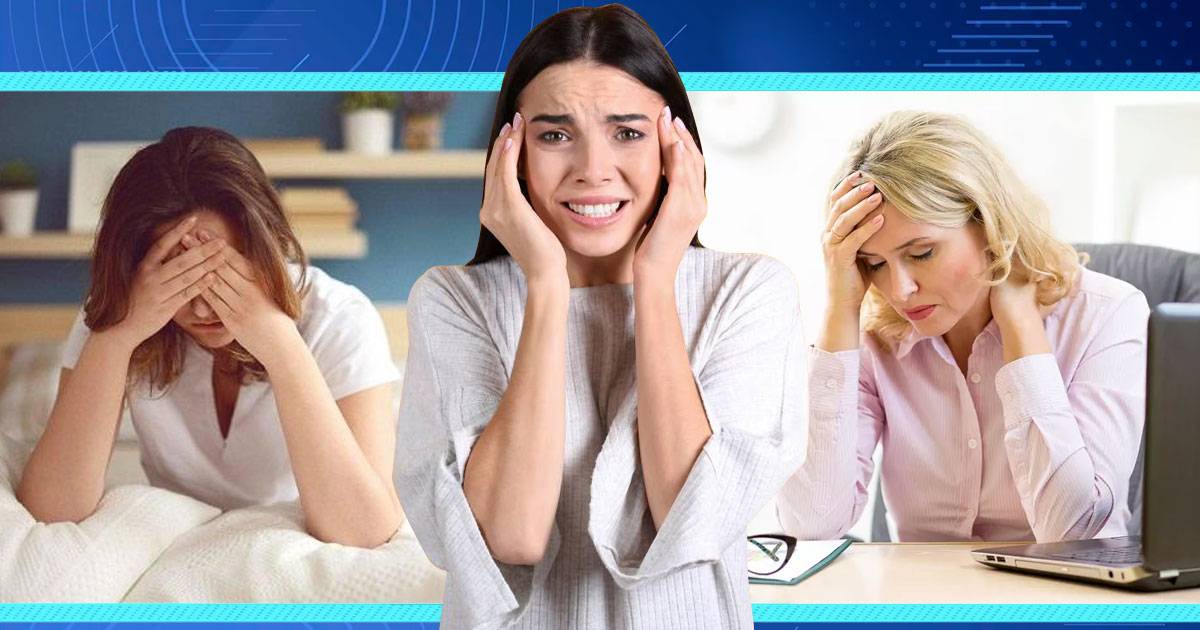Can Hormones Be Behind Your Anxiety? Here’s What You Need to Know

Anxiety affects millions of people worldwide, and while stress and genetics are common causes, hormones can also play a crucial role. Hormones are important for controlling many functions in our bodies, including how we feel emotionally. Knowing how hormones can affect anxiety can help people identify what might be causing their anxiety and find ways to treat it.
Understanding Hormones and Their Functions
Hormones are chemical messengers produced by glands in the endocrine system. They move through the bloodstream to different organs and tissues, affecting many bodily functions, such as:
- Metabolism
- Growth and development
- Reproductive functions
- Mood regulation
- Sleep patterns
Because hormones have such a broad impact, any imbalance in their levels can lead to various health problems, including anxiety.
Can hormones cause anxiety?
Yes, hormones can cause anxiety. Hormones are chemicals produced by glands in your body that control a variety of processes, including mood and stress reactions. Anxiety can result from hormonal imbalances. Here’s how some key hormones can affect your anxiety levels:
- Cortisol: Known as the “stress hormone,” cortisol is released when you’re stressed. Chronic stress can cause elevated cortisol levels, which may exacerbate anxiety symptoms.
- Estrogen: This hormone is important for mood regulation. Changes in estrogen levels, such as those during your menstrual cycle, pregnancy, or menopause, can cause mood swings and heightened anxiety.
- Progesterone: Progesterone can affect mood in complex ways. While it may help promote calmness at certain times, increased levels after ovulation can sometimes lead to anxiety in some people.
- Testosterone: Low testosterone levels, especially in men, are linked to higher anxiety. Testosterone helps manage emotional responses and social interactions.
- Thyroid Hormones: Anxiety can be caused by either hyperthyroidism (an overactive thyroid) or hypothyroidism. Thyroid hormones play a big role in regulating energy levels and mood.
- Serotonin: Though not a hormone, serotonin is a neurotransmitter affected by hormonal changes. Decreased serotonin levels are frequently linked to anxiety and depression.
How can hormonal imbalance cause anxiety?
Hormonal imbalances can happen for several reasons:
- Natural Life Stages: During puberty, menstruation, pregnancy, and menopause, your hormone levels change significantly. These changes can affect your mood and increase anxiety.
- Medical Conditions: Disorders like polycystic ovary syndrome (PCOS) or thyroid problems can interfere with normal hormone production, leading to anxiety.
- Stress: Chronic stress increases cortisol levels and can disrupt the balance of hormones. This imbalance might lead to a loop in which anxiety develops over time.
What are the symptoms of hormonal anxiety?
Recognizing symptoms of hormonal anxiety can help identify if your anxiety is related to hormonal changes. Common symptoms include:
- Mood Swings: Rapid and intense mood changes.
- Irritability: Feeling unusually annoyed or upset.
- Sleep Issues: Difficulty falling or staying asleep.
- Fatigue: Persistent tiredness.
- Concentration Problems: Trouble focusing on tasks.
How to treat anxiety caused by hormones?
Treating anxiety caused by hormonal imbalances usually requires a mix of methods to address both the hormone issues and the anxiety itself. Here’s a simple guide:
1. Medical Evaluation
See a Healthcare Provider: It’s important to get a professional diagnosis to find out if hormonal imbalances are causing your anxiety. This may include:
- Blood testing to evaluate hormone levels
- Physical examinations
- Reviewing your medical history and symptoms
2. Lifestyle Changes
Making healthy lifestyle changes can help balance hormones and improve mental health:
- Exercise Regularly: Physical activity helps keep hormones in balance and reduces stress.
- Eat a Balanced Diet: To maintain hormone health, eat whole foods such as fruits and vegetables, lean meats, and healthy fats. Studies show that eating more fiber-rich foods, fermented foods, and omega-3s can lower stress and anxiety and might improve your mental health.
- Manage Stress: Practices like yoga, meditation, or mindfulness can lower cortisol levels and ease anxiety.
3. Medication
Sometimes medication may be needed to manage hormonal imbalances or severe anxiety:
- Hormone Replacement Therapy (HRT): This may be recommended for women experiencing menopause-related anxiety due to low estrogen or progesterone.
- Antidepressants or Anti-anxiety Medications: These can be prescribed if anxiety symptoms are severe or long-lasting.
4. Therapy
Cognitive-behavioral therapy (CBT) and other therapeutic approaches can assist you in developing anxiety-reducing strategies in response to hormonal changes.
5. Alternative Treatments
Some people get comfort from acupuncture or herbal medicines. Before starting any new therapy, visit your healthcare professional. By combining these approaches, you can better manage anxiety related to hormonal imbalances and improve your overall well-being.
6. Natural Remedies
Some natural remedies might help balance hormones and alleviate anxiety:
- Herbal Supplements: Supplements like evening primrose oil or chaste tree may support hormonal balance.
- Essential Oils: Lavender essential oil can help reduce stress and anxiety.
- Acupuncture: Acupuncture can help some people feel less anxious.
How Hormones Affect and Manage Anxiety
Anxiety can be influenced by hormones, which help control many functions in our body, including mood and stress. When hormone levels are out of balance, it can lead to more anxiety. Understanding how hormones like cortisol, estrogen, and thyroid hormones affect anxiety can help you figure out the cause and find ways to treat it.
Managing anxiety related to hormones usually involves seeing a doctor, making healthy lifestyle changes, and possibly using medication or therapy. By doing these actions, you can manage your anxiety and feel better in general.
